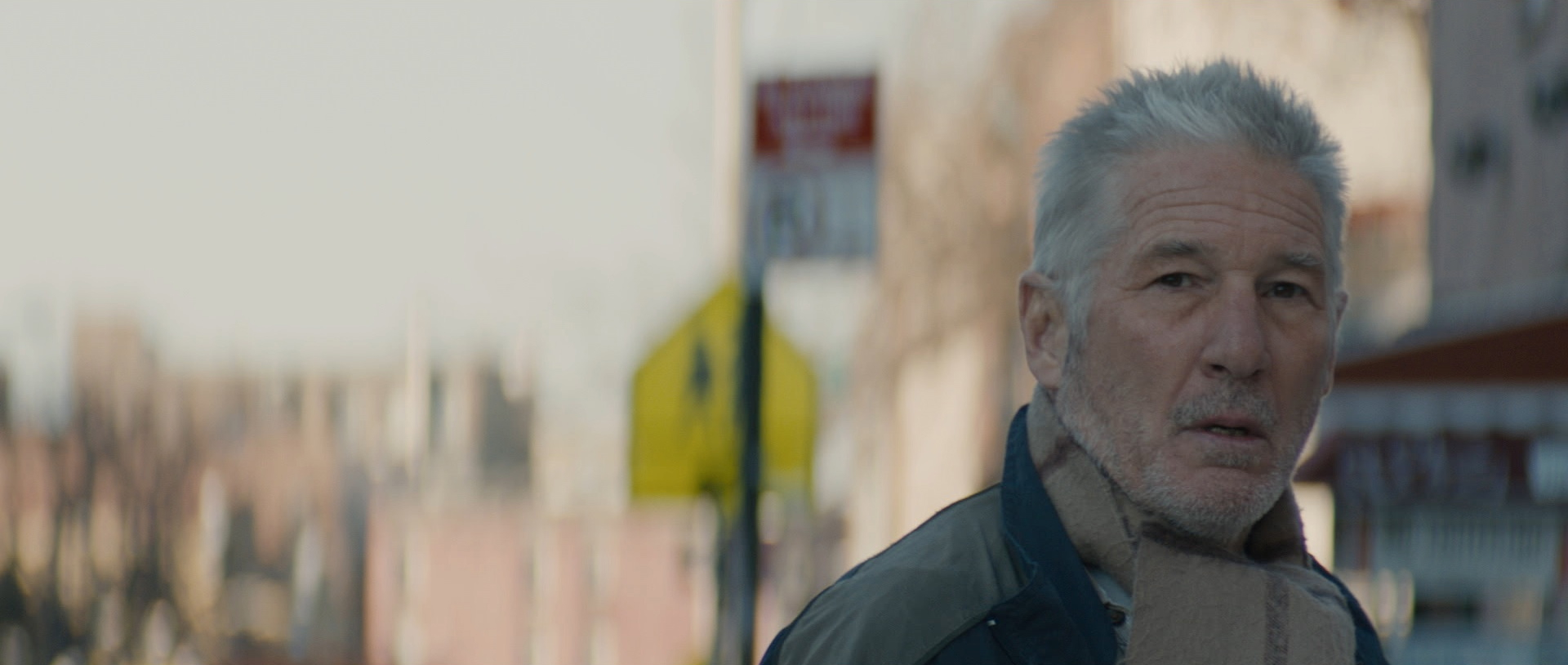As post-recession Seattle swells with ever more wealth, inequality becomes that much more pronounced. King County’s 10-year war on homelessness has officially been pronounced a failure, and we see those tensions projected in two timely films set in New York. But with minimal changes, they could equally well transpire in our own local parks, streets, shelters, and hospitals.
Richard Gere plays a damaged and disoriented street denizen in Time Out of Mind, his name deliberately withheld for most of this worthwhile procedural film by Oren Moverman (The Messenger, Rampart), who’s scheduled to attend SIFF. To name him would be to humanize him, but that’s not how the system works. A few kind strangers take notice, but George is mostly ignored and shunned. His musician daughter (Jena Malone) is ashamed of her old man, rebuffing his overtures. A talkative fellow resident at the homeless shelter (Ben Vereen) tries to get close, but George in turn rebuffs him. Indifference makes the world go round. Everyone performs the same mental calculation: To care would cost me how much? Moverman isn’t one to drop easy pennies of sentiment into the supplicant cup. George is a drunk, he urinates in public, and he hardly cooperates with anyone inclined to help him. And yet, he’s Richard Gere. (He’s also white, a relative rarity on the streets, as Vereen’s character notes.) Thus Time Out of Mind unsparingly illustrates a known problem by using a movie star, but it also tells us nothing new about that problem. (SIFF Cinema Uptown, 7 p.m. Fri. SIFF Cinema Egyptian, 1:30 p.m. Sat.)
Heaven Knows What, directed by Benny and Josh Safdie, suffers the same defect, but it packs so much more of a punch. Its homeless, heroin-addict heroine Harley is played by formerly (we hope) homeless, heroin-addicted Arielle Holmes, whom the Safdies (Daddy Longlegs) commissioned to write a memoir they expanded into a script. It’s all gritty life-inspired vignettes; there is no story here, and most of the performers were cast from the street. We simply watch as Harley and her ilk beg, steal, score, lie to one another, quarrel, and forgive. They enact the noisy sort of street theater that causes us polite SIFFgoers to look away in embarrassment (whether on the Bowery on in Pioneer Square). Those people—they can’t be helped. We’ve all had that disdainful feeling, yet the Safdies don’t let us look away. This is not an artful film, and I hate the score (Debussy paraphrased on an ’80s Atari synth). Still, when you realize Holmes’ story is mostly true, that she’s now clean and has a Hollywood agent, you realize that street performers like George and Harley can be helped after all. (Uptown, 9 p.m. Fri. & 2 p.m Sun.)
The Valley offers very little action, even less clarity, but it ratchets up the tension to an oblique, intriguing degree. A nameless bald stranger is found bleeding by the roadway in Lebanon’s notoriously lawless Bekaa Valley. He claims to have amnesia, though no one really tests this assertion. Could he be an Arabic-speaking Israeli spy, or what? It turns out that his rescuers don’t care about such politics. They’re a family of Christian drug runners, with polite table manners but no deity save the dollar. These samaritans allow their dazed houseguest to observe their intimate domestic routines, even while artillery smoke and screaming jets overhead signal the winds of regime change. (The film, directed by Ghassan Salhab, appears to be set before the rise of ISIS.) The stranger is like a phantom among the living—perhaps the willful projection of bad conscience. Salhab layers riddles upon enigmas, including the basic constitution of the cocaine-farming clan (apparently a patriarch, two daughters, and their husbands of different faiths). Is there a lesson here? Perhaps only this: Tourists, stay away from the Bekaa Valley. (Harvard Exit, 3:30 p.m. Fri. Uptown, 8:30 p.m. Mon.)
And in briefest terms: The life-inspired, James Franco-starring I Am Michael, about a gay activist turned evangelist, cheats the ending. (Egyptian, 6:30 p.m. Fri. & 4:15 p.m. Sat.) Cranky Al Pacino gets an acting workout in David Gordon Green’s Manglehorn, but it’s more magical-realist character study than movie. (Egyptian, 11 a.m. Sat. Renton, 5 p.m. Sun.) And the poignant doc Don’t Think I’ve Forgotten celebrates a brief flourishing of Cambodian rock music (between colonial liberation and Pol Pot), with a wealth of amazing archival footage. (Renton, 2:15 p.m. Sat. Uptown, 9:15 p.m. Tues., June 2 & 3 p.m. Wed., June 3)
bmiller@seattleweekly.com








